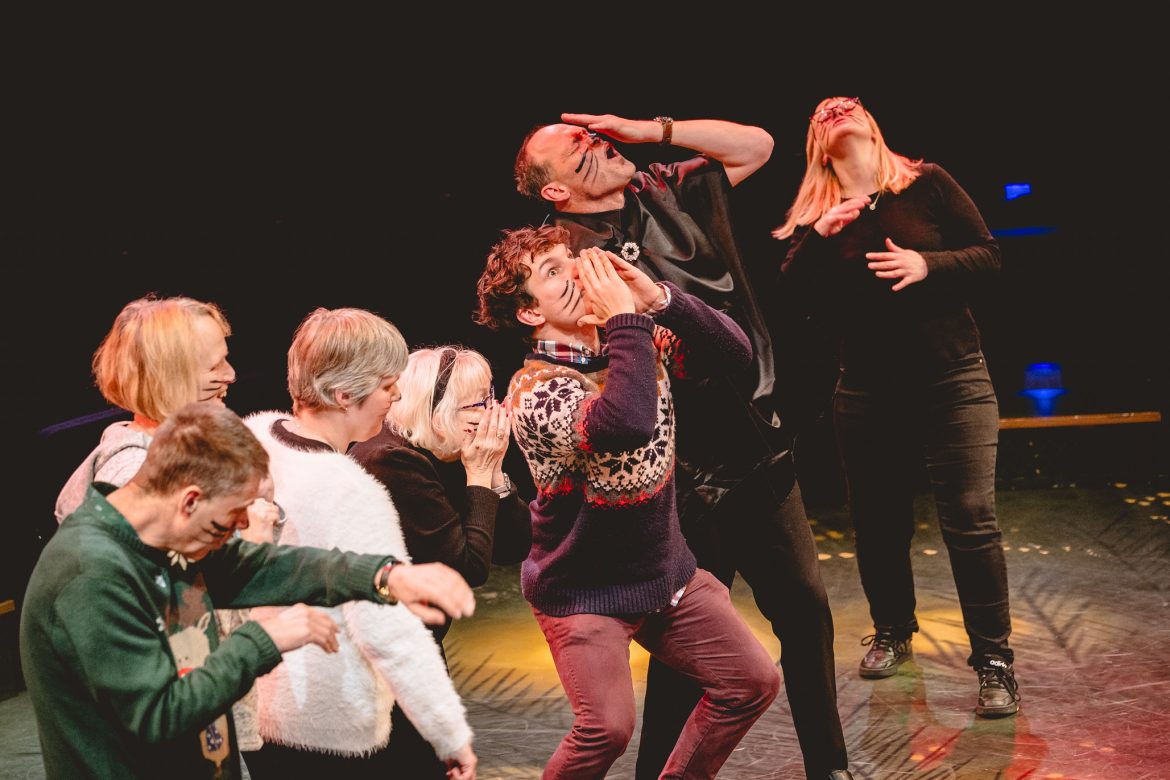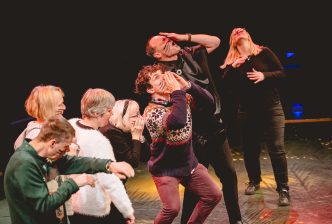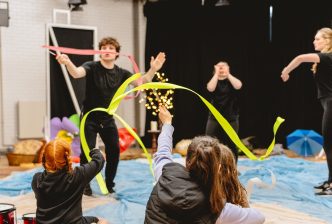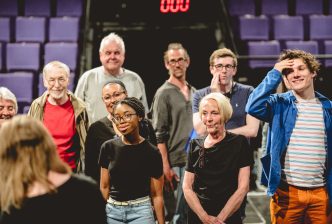Neurodiversity Celebration Week: Freelance Borderlines community practitioner Rory talks about his experience working in the arts
Neurodiversity Celebration Week: Freelance Borderlines community practitioner Rory talks about his experience working in the arts
18th March 2024
Twenty-four-year-old Rory Blessington, a freelance community practitioner with New Vic Borderlines, chats about how working in the arts has helped his experience of speech dyspraxia and semantic pragmatic disorder, as Neurodiversity Celebration Week takes place from 18 to 24 March.
Can you tell us about your experience of speech dyspraxia and semantic pragmatic disorder?
Speech dyspraxia is the difficulty to be able to make or coordinate movements needed to speak clearly and easily, and semantic pragmatic disorder is being unable to process all given information in a certain situation.
I always thought of it as a negative throughout my childhood, but being someone who is neurodiverse, I understand we’re all wired differently. People can interpret you as too needy, distant, or saying the wrong thing. Dyspraxia is often known as the ‘clumsy syndrome’. I felt like that as a kid and used to bottle my emotions, but now I embrace it. We are becoming more aware of disabilities that aren’t visible and that’s a great thing because you don’t have to pretend to be someone you’re not.
How did you first get into theatre?
I couldn’t speak until I was four. My parents were trained in Makaton. I did annual plays at infant school, and even though I couldn’t speak I liked it. I carried on throughout school, but I never got the bug until somebody suggested I went to Stagecoach. I thought I’d be eaten alive by all these theatrically minded people but I loved doing the workshops. Year 9 is when I felt confident and got involved in a ‘Play in Three Days’ project, I auditioned for the role of Shere Khan in The Jungle Book, and I came out of my shell. I’m very lucky to have had support from speech therapists and teaching assistants, but theatre helped me develop who I am, and my confidence, too.
How did you get involved with New Vic Borderlines?
We would come and see the Christmas performances at the New Vic with my Grandad, but it was Around the World in 80 Days, which we came to see when I was six or seven, that’s when I thought ‘wow, I love this’. I loved the way the New Vic created theatre and I kept on coming to performances. I got involved with Borderlines just before university, for the anniversary of the Minnie Pit disaster they wanted a community cast for a show. That gave me a new outlook on how theatre can be performed within the community, it really shaped my view of keeping those stories alive and telling them to the next generation.
I started as a freelance community practitioner about a year-and-a-half ago. Sue [Moffat, New Vic Borderlines Director], was very enthusiastic about the work I did at Loughborough University as part of my Drama and English degree. I worked on the Next Chapter project [working with adults with mental health issues including experience of addiction and homelessness] first, I felt right in the zone, it was very similar to projects I was doing at university. From there I worked with the Strathcross group [a company of people with learning difficulties] and Young People’s Theatre Company too.
How have you found working at the New Vic?
I’m using my skills in the way that I hoped I would and it’s giving me confidence in my ability to be a practitioner. My work with the New Vic has helped me deal with my disability in a professional setting. It feels great to be able to work at a theatre that I’ve always admired. You feel a sense of giving back to the community, while also learning on the job.
What support is useful for you to be able to do your best work?
Sometimes you say something you didn’t mean to say, or an idea doesn’t come out right, and it knocks your confidence for the rest of the day. So being able to ask to say something again. Or other people being comfortable to ask, ‘Rory is that what you meant?’. I think with non-visible disabilities people are afraid to ask. When people ask me about my needs I don’t shy away from it, because it’s part of who I am.
What advice would you give to somebody who is neurodiverse looking to begin a career in theatre?
Don’t feel doubtful or afraid about who you are, or your ideas. Maybe I come up with some weird and wild ideas, but seeing the world differently shouldn’t be something negative especially within the arts.



